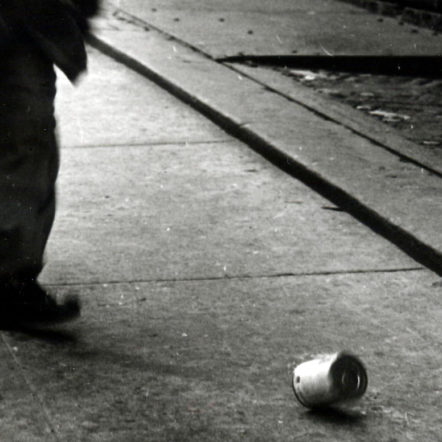Consequences are a central and inescapable feature of life. Some are good, some bad. The good ones improve us and the world around us; the bad ones harm both. We have the power to influence consequences to some degree. We cannot, of course, undo them once they have occurred, but we can prevent them from re-occurring. To do this we need to trace present events back to the ideas and actions that caused them, and then apply that understanding to reject the mistaken ones and retain the helpful ones. This process makes individuals wiser and society more stable.
The habit of being alert to consequences is the key to understanding ourselves and the events unfolding around us. Consequences great and small occur at every moment of time. The Bible says the first unfortunate consequence was Adam and Eve’s punishment for eating the forbidden fruit, which was physical and mental imperfection for them and all their progeny. (That, of course, includes us, our imagined perfection notwithstanding.)
One consequence usually leads to others. For example, the assassination of Austrian Archduke Ferdinand sparked a world war, killed 40 million and wounded 21 million, then planted the seeds for a second world war that took 71 million more. Human action is not required for consequences to occur. Lightning strikes a tree and a forest is set ablaze. A sick rat bites a sailor and a plague ravages Europe, killing between 75 million and 200 million people.
Good consequences are as plentiful as bad. The dedication of medical researchers yields techniques and medicines that reduce pain and suffering. The arduous efforts of inventors and entrepreneurs make life immeasurably better for mankind. The selfless services of firefighters prevent the loss of lives.
The moment a consequence occurs, it becomes part of reality. When identified and articulated, it becomes part of history, which has many categories, large and small. The universe has a history. The earth has a history. Every field of knowledge does as well—from law, medicine, exploration, engineering, biology, sociology, psychology, philosophy, religion and government to art, cuisine, and horticulture. Every human being has a history that begins at birth (if not in the womb) and ends at death.
Consulting history is our principal way of understanding causes and effects (consequences). History is therefore priceless. But even so, it is subject to error because it is recorded by humans. To say something happened is no guarantee that it actually happened. It could be a figment of the person’s imagination. For that matter, to say that one thing is the cause of another may be false—it could have had a different cause. Both the writing and reading of history must therefore be done with care.
The alternative to examining and learning from consequences is ignoring or denying them, which robs us of interest in the causes of problems and therefore prevents us from seeking solutions. As a result, we become lost in a continuing cycle of repeating the same thoughts and behaviors over and over. As Albert Einstein noted, that cycle defines “Insanity.”
The evidence is clear that America and a number of other western countries are trapped in such a cycle, and the insanity of it is growing as the problems worsen. Here are a few examples:
As the number of illegals crossing our southern border keeps increasing, and the difficulties associated with their entry multiply, our leaders either deny that a problem exists or blame it on something other than its obvious cause, the opening of the border.
As city after city is struggling with increasing violence toward its citizens and destruction of public and private property, officials continue to deny that these problems are a consequence of the defunding of the police or the restriction of their efforts to apprehend criminals.
As large and small pharmacy, grocery, and department chains are closing hundreds of stores in areas where shoplifting and blatant theft of their goods are epidemic, elected officials are denying any connection between those crimes and laws reducing penalties for criminals.
As young peoples’ math and reading scores continue to plummet, educators don’t consider that the decline may have been caused by faulty teaching methods or low expectations; instead they assume that more lenient grading will solve the problem.
When parents argue that it is inappropriate and offensive for schools to be adding sexual materials to grade school instruction, refuse to consider that the parents’ concern about dangerous consequences might have merit, and instead denounce the parents for complaining and call for their arrest.
What can we do about this trend of ignoring or denying consequences? First, we can become more curious about trends in thought and behavior concerning social issues, learn about them, and consider which viewpoints are most reasonable. We can also find what scholars and trustworthy commentators say about those issues and share the results with friends. Finally, at election time, we can investigate candidates for local, state, and federal offices and vote for those who have a clear grasp of important issues and intelligent plans for dealing with them.
Copyright © 2023 by Vincent Ryan Ruggiero. All rights reserved






